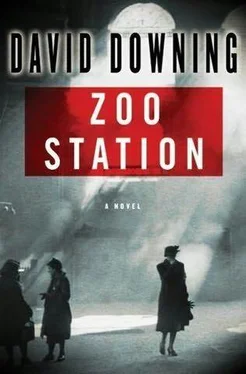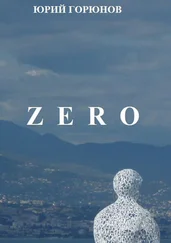David Downing - Zero Station
Здесь есть возможность читать онлайн «David Downing - Zero Station» весь текст электронной книги совершенно бесплатно (целиком полную версию без сокращений). В некоторых случаях можно слушать аудио, скачать через торрент в формате fb2 и присутствует краткое содержание. Жанр: Шпионский детектив, на английском языке. Описание произведения, (предисловие) а так же отзывы посетителей доступны на портале библиотеки ЛибКат.
- Название:Zero Station
- Автор:
- Жанр:
- Год:неизвестен
- ISBN:нет данных
- Рейтинг книги:5 / 5. Голосов: 1
-
Избранное:Добавить в избранное
- Отзывы:
-
Ваша оценка:
- 100
- 1
- 2
- 3
- 4
- 5
Zero Station: краткое содержание, описание и аннотация
Предлагаем к чтению аннотацию, описание, краткое содержание или предисловие (зависит от того, что написал сам автор книги «Zero Station»). Если вы не нашли необходимую информацию о книге — напишите в комментариях, мы постараемся отыскать её.
Zero Station — читать онлайн бесплатно полную книгу (весь текст) целиком
Ниже представлен текст книги, разбитый по страницам. Система сохранения места последней прочитанной страницы, позволяет с удобством читать онлайн бесплатно книгу «Zero Station», без необходимости каждый раз заново искать на чём Вы остановились. Поставьте закладку, и сможете в любой момент перейти на страницу, на которой закончили чтение.
Интервал:
Закладка:
“Sometimes I wish I was a Jew,” she said. “If the Nazis hate them that much, they must be real human beings.”
Russell grunted his acquiescence. “I heard a joke the other day,” he said. “Hitler goes rowing on the Wannsee, but he’s not very good at it, and manages to overturn the boat. A boy in a passing boat manages to haul him out and save him from drowning. Hitler, as you can imagine, is overcome with gratitude and promises the boy whatever he wants. The boy thinks for a moment, and asks for a state funeral. Hitler says, ‘You’re a bit young for that, aren’t you?’ The boy says, ‘Oh, mein Fьhrer, when I tell my dad I’ve saved you from drowning he’s going to kill me!’”
Effi started laughing again, and he did too. For what seemed like minutes they stood on the sidewalk, embracing and shaking with mirth.
Next afternoon Thomas and Joachim were waiting in the usual place, sitting on a low wall with cartons of half-consumed frankfurters and kartoffelsalad between them. Russell bought the same for himself and Paul.
Once inside the Plumpe they headed for their usual spot, opposite the edge of the penalty area, halfway up the terrace on the western side. As their two sons read each other’s magazines, Russell and Thomas sat themselves down on the concrete step and chatted. “How’s business?” Russell asked.
“It’s good,” Thomas said, unbuttoning his overcoat. He’d been running the family paper business since his and Ilse’s father had died a few years earlier. “It’s getting harder to find experienced staff, but other than that…” He shrugged. “There’s no lack of orders. How about you?”
“Not too bad. I’ve got the opening of the new Chancellery tomorrow, and there should be a decent piece in that-the Americans like that sort of thing.”
“Well that’s good. How about Danzig? Did you get anything there?”
“Not really.” Russell explained about the stamp wars.
Thomas rolled his eyes in frustration. “Like children,” he muttered. “Speaking of which, Joachim’s been called up for his arbeitsdienst.”
“When?”
“The beginning of March.”
Russell looked up at Joachim, engrossed in his magazine. “Ah,” he said, glad that Paul was still six years away from the year of drilling, draining swamps, and digging roads which the Nazis imposed on all seventeen-year-old boys. “How does he feel about it?”
“Oh, he can’t wait,” Thomas said, glancing affectionately up at his son. “I suppose it can’t do him any harm. Unlike what’ll probably follow.”
Russell knew what he meant. When they’d first become friends over ten years ago, he and Thomas had talked a lot about their experiences in the war. Both had friends who’d survived the war in body, yet never recovered their peace of mind. And both knew that they themselves had been changed in ways that they would never fully understand. And that they had been the lucky ones.
“Happy days,” Russell murmured, and then laughed. “We had a run-in with the SS last night,” he said, and told Thomas the story.
He wasn’t as amused as Russell expected. “She’ll go too far one of these days. The fragebogen’s just a piece of paper, after all. One day they’ll take her in, tear it up, and the next thing you know her parents will be getting a bill for her burial.” He shook his head. “Being right doesn’t count anymore.”
“I know,” Russell said. “She knows. But she does it so well.”
A chorus of catcalls erupted around them: Viktoria Berlin were on their way out. As the two men got to their feet, Hertha emerged to a more affectionate welcome. Casting his eyes over the towering grandstand and the high crowded terraces behind each goal, Russell felt the usual surge of excitement. Glancing to his left, he saw that Paul’s eyes mirrored his own.
The first half was all Hertha, but Viktoria scored the only goal on a breakaway just before the interval. Joachim seethed with indignation, while Paul yo-yoed between hope and anxiety. Thomas smoked two cigarettes.
The second half followed the same pattern, and there were only ten minutes left when Hertha’s inside-left was tripped in the penalty area. He took the penalty himself. The ball hit both posts before going in, leaving the crowd in hysterics. A minute from time, with evening falling and the light abruptly fading, Hertha’s center-forward raced onto a long bouncing ball and volleyed it home from almost thirty yards. The Viktoria goalkeeper hadn’t moved. As the stadium exploded with joy he just stood there, making angry gestures at his teammates, the referee, the rest of the world.
Paul was ecstatic. Eyes shining, he joined in the chant now echoing round the arena: “Ha! Ho! He! Hertha BSC! Ha! Ho! He! Hertha BSC!”
For an eleven-year-old, Russell thought fondly, this was as good as it got.
It was dark by the time he dropped Paul off. He took a 76 back into town, ate supper at a beer restaurant just off the Potsdamerplatz, and walked the last kilometer home. Reaching his street, he noticed what looked like the same empty car parked across from his apartment block. He was on his way to investigate it when he heard the scream.
It was no ordinary scream. It was loud and lingering, and it somehow managed to encompass surprise, terror, and appalling pain. For a brief instant, Russell was back in the trenches, listening to someone who’d just lost a limb to a shell.
It came from further down the street.
He hesitated, but only long enough for his brain to register that hesitation as an essential corollary of living in Nazi Germany. All too often, screams meant officialdom, and experience suggested that officialdom was best avoided at such moments.
Still, investigating one seemed a legitimate practice, even in Nazi Germany. Not all crimes were committed by the state or its supporters. Russell walked resolutely on past the courtyard which his block shared with its neighbor, telling himself that valor was the better part of discretion.
The source of the disturbance was the further of the two blocks off the next courtyard. A couple of men were hovering in the entrance, obviously uncertain what to do. They eyed Russell nervously, and looked at each other when he asked them what was going on. Both were in their forties, and an obvious facial similarity suggested brothers.
In the courtyard beyond, an open-backed truck was parked with its engine running, and a single man in an SA uniform was walking toward them.
“Keep moving,” he told them, without any real conviction. His breath stank of beer.
“But we live here,” one of the two men said.
“Just wait there, then,” the stormtrooper said, looking up at the illuminated windows on the third floor. “You might get some free entertainment,” he added over his shoulder as he walked back toward the truck.
Seconds later, another bloodcurdling scream reverberated round the courtyard.
“What in God’s name…?” Russell began. “Who lives up there?” he asked the two men.
“Two actors,” the older of the two replied.
“Warmer brьder,” the other added, hot brothers, the current slang for homosexuals. “They’ve been brazen as hell. Someone must have denounced them.” He didn’t sound too upset about it.
No other lights were showing in either block, but Russell could almost feel the silent audience watching from behind the tiers of darkened windows. He thought about calling the police, but knew there was no point.
One of the illuminated windows was suddenly flung open, and a man appeared silhouetted against the opening, looking out and down. A crying, whimpering sound was now audible, and just as the man disappeared another scream split the night, even more piercing than the last. There was a flurry of movement inside the lighted room, and suddenly a naked body was flying out through the window, dropping, screaming, hitting the floor of the courtyard with a sickening, silencing thud. The body twitched once and lay still, as desperate, sobbing pleas of “no, please, no” leaked out of the open window. Another flurry, another naked body, this one twisting in flight like an Olympic diver who’d mistaken concrete for water. There was no twitch this time, no last-second adjustment to death.
Читать дальшеИнтервал:
Закладка:
Похожие книги на «Zero Station»
Представляем Вашему вниманию похожие книги на «Zero Station» списком для выбора. Мы отобрали схожую по названию и смыслу литературу в надежде предоставить читателям больше вариантов отыскать новые, интересные, ещё непрочитанные произведения.
Обсуждение, отзывы о книге «Zero Station» и просто собственные мнения читателей. Оставьте ваши комментарии, напишите, что Вы думаете о произведении, его смысле или главных героях. Укажите что конкретно понравилось, а что нет, и почему Вы так считаете.












